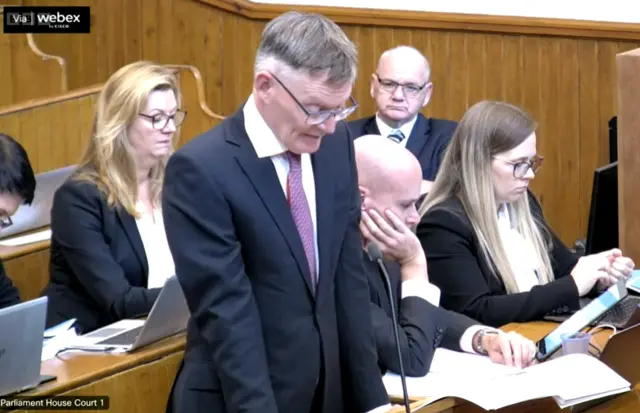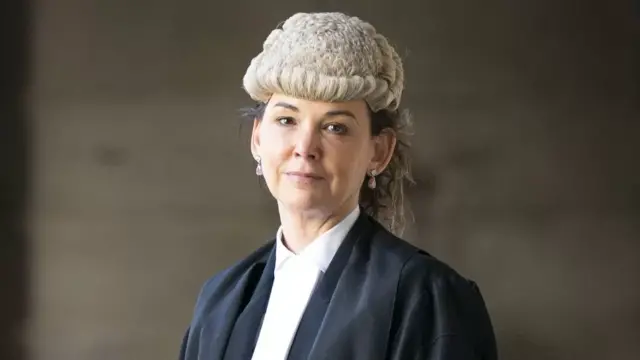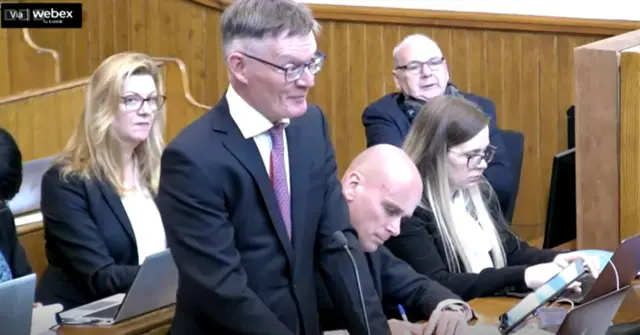
'Open justice principle'published at 12:40 BST 20 September 2023
 James Cook
James Cook
Scotland Editor, BBC News
Similar points are made involving the Guardian, which, while accepting there may be limits to disclosure, states, external:
“In a case where documents have been placed before a judge and referred to in the course of proceedings…the default position should be that access should be permitted on the open justice principle; and where access is sought for a proper journalistic purpose, the case for allowing it will be particularly strong.”






